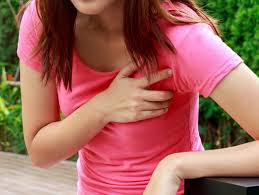Angina
Angina
Angina is chest pain or discomfort that occurs when the heart isn’t receiving enough blood. It is a symptom of an underlying heart problem, usually coronary artery disease.
There are three types of angina:
- Stable angina, the most common form, may occur when the heart is working harder than usual. It is usually helped by rest and medication.
- Unstable angina, which can occur without physical activity and could be a sign of a potential heart attack.
- Variant angina is rare, occurring at rest, and is often helped by medication.
Angina: what you should know
Along with pressure or squeezing in the chest, signs of angina may include indigestion or pain in the shoulders, arms, neck, jaw or back.
Though angina is a sign of coronary artery disease, not all chest pain or discomfort is an indication of coronary artery disease. Other conditions that can cause chest pain include a lung infection or a panic attack.
Care for angina : Reference Dr Rajneesh kapoor
You might need one or more of these treatments:
- Cardiac rehabilitation to help you make lifestyle modifications and learn how to exercise safely
- Nitroglycerin, a fast-acting medication in either spray or tablet form that relieves angina symptoms
- Aspirin to help prevent the formation of blood clots
- Beta blockers, which are medications used to slow down the heart rate and how much oxygen the heart needs
- Statins (such as rosuvastatin or atorvastatin), cholesterol-lowering medications that improve blood flow even before your cholesterol level goes down
- Dietary changes to reduce cholesterol, plaque and inflammation
- Angioplasty, a procedure used to open a blocked artery
- Bypass surgery to improve blood flow to the heart and relieve chest pain
